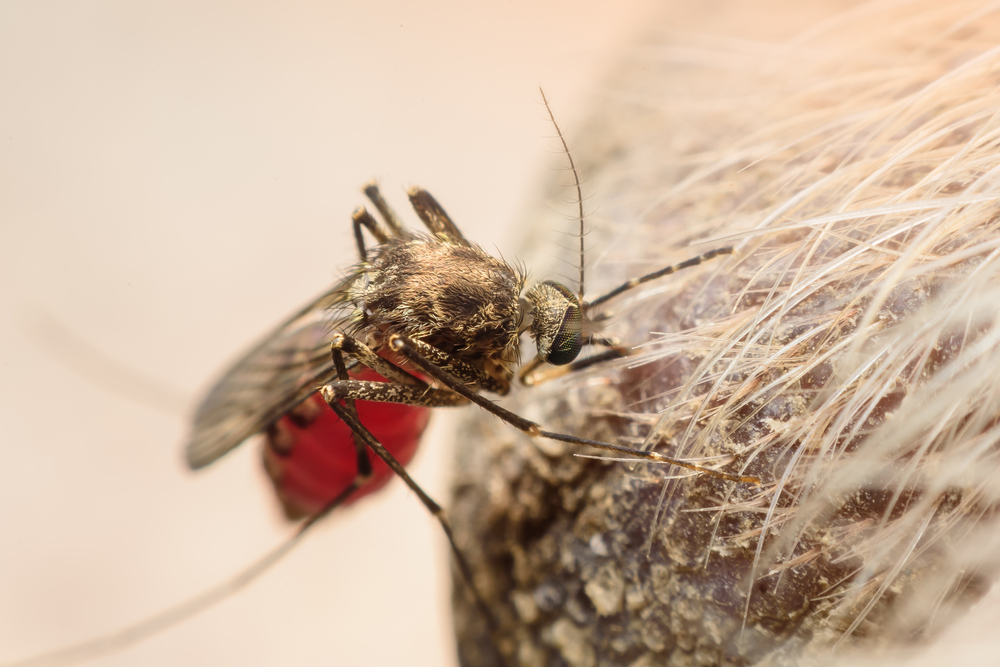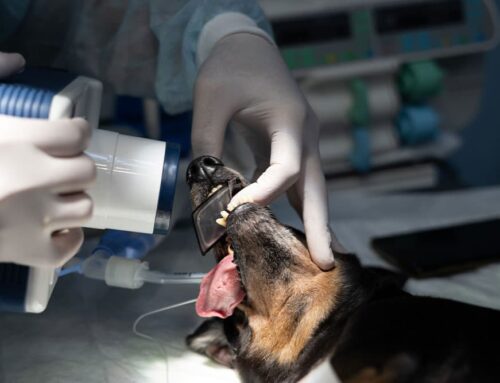One of the most devastating parasitic diseases affecting dogs and cats begins with a single mosquito bite. According to the American Heartworm Society (AHS), more than a million U.S. pets are suffering from heartworm disease—a potentially deadly infection that wreaks havoc on an affected pet’s cardiovascular system. Fortunately, with increased awareness, year-round prevention, and routine wellness care at South Shore Pet Clinic, you can keep your beloved pet safe from this heartbreaking disease.
What are heartworms and how do they affect pets?
Heartworms are long, thin worms that live in an infected pet’s heart, lungs, and large blood vessels. Common heartworm hosts include dogs, wolves, foxes, and coyotes, but cats can also be affected. These large mobile worms cause severe inflammatory reactions, damage the vascular lining, and can obstruct blood flow by forming life-threatening blockages.
Untreated heartworm disease can be devastating for pets and their owners. Early disease signs in dogs can include coughing, fatigue, and labored breathing. As the disease progresses, dogs may experience weight loss, decreased appetite, bloating, and heart failure. In cats, the disease may be less obvious, with affected cats displaying vague respiratory or gastrointestinal (GI) signs. Tragically, for some cats, the only sign is sudden death.
How is heartworm disease transmitted to pets?
Heartworm disease is spread through an infected mosquito’s bite. When a mosquito bites an infected animal, the insect ingests the microscopic baby heartworms, known as microfilariae. Inside the mosquito, the microfilariae mature into infective larvae. When the infected mosquito bites another animal, the insect can transmit these larvae into their bloodstream, where the heartworms migrate, mature, and the cycle begins again.
Why do pets need year-round heartworm prevention?
Pet owners mistakenly assume that heartworm prevention is only necessary during the warmer seasons when mosquitoes are more active. However, because mosquitoes can survive indoors, emerge from dormancy on mild winter days, and thrive year-round in warmer climates, such as ours, year-round prevention is essential.
Consistent preventive dosing ensures you never forget to medicate your pet or resume prevention after a break. Additionally, because most oral and topical preventives work retroactively—killing off microfilariae that have infected the pet within the past 30 days—a single missed dose is all it takes for an infection to take hold.
Take action: Guard your pet’s heart and health with proactive measures

Safeguarding your pet against heartworm disease requires consistent and targeted effort. Fortunately, with prescription heartworm preventives and wellness care at South Shores Pet Clinic, protecting your pet can be as easy and automatic as loving them. To protect your pet from heartworm disease, follow these tips:
- Staying up-to-date on routine veterinary care — Your pet’s annual or biannual preventive care visits are a great time to discuss your pet’s overall health and review their parasite prevention plan. Our veterinarian can recommend the most suitable heartworm preventives based on your pet’s preferences, lifestyle, and individual needs.
- Administering heartworm preventives — Follow our veterinarian’s recommendations for administering your pet’s heartworm preventives. Heartworm prevention is available in various forms, including flavored tablets or chews, topical treatments, and injectable medication. Ensure you never miss a dose by setting a reminder on your phone, signing up for automatic pharmacy deliveries, or downloading a medication app.
- Having your dog tested annually for heartworm disease — Heartworm testing screens your dog’s blood for adult heartworm proteins. Testing is recommended for all dogs, including those receiving year-round prevention, to ensure the medication is effective and that no doses are missed.
- Discouraging mosquitoes from your pet’s outdoor areas — Mosquitoes breed in standing water, so drain areas where water may stagnate. Don’t forget to check objects, such as discarded tires, old toys, and patio furniture, where rainwater may accumulate. Ensure you frequently empty and clean water sources, such as pet bowls or bird baths, to deter mosquitoes from laying eggs.
- Using pet-safe repellent products on your pet or lawn — If you enjoy spending time outdoors with your pet, consider applying pet-safe lawn treatments or topical sprays to repel buzzing mosquitoes.
- Staying indoors during peak mosquito activity times — Mosquitoes are most active at dawn and at dusk, so reschedule your pet’s outdoor activity to minimize their mosquito exposure.
- Talking to other pet owners about heartworm disease — Educating other pet owners about heartworm disease helps the entire community. When more pets are receiving year-round heartworm prevention, local infection rates—and transmission risks—will decrease.
Heartworm disease is an ongoing threat to pet health, but with dedicated prevention efforts and routine screening and care at South Shores Pet Clinic, you can feel confident knowing you’re doing everything you can for your dog or cat. To discuss your pet’s parasite prevention plan or to schedule an appointment, contact our team.







Leave A Comment